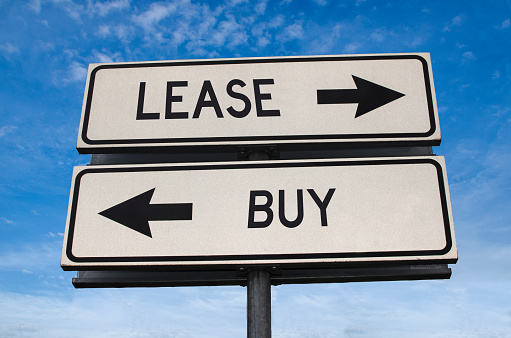
by ARTIS COMMERCIAL CAPITAL | Sep 27, 2022 | Blog
There’s a common misconception among business owners that loans are good and leases are bad. In reality, there are many factors you need to consider before deciding which option is right for your business when it comes to equipment. Both loans and leases are financial tools with different pros and cons. You may be surprised to know that in many situations, equipment leasing can be the better choice for your business.
Factors To Consider When Deciding Between Equipment Leasing and Equipment Loans
One factor that can affect your decision is the amount of available working capital you have every month. Another factor is your credit score. You also need to consider how long the equipment you need will stay current. Will you need to upgrade it in a few years?
Finally, think about the value of owning that particular piece of equipment. Is it something that is going to last for 20 years or more, providing decades of high-quality service?
Down Payments
One of the biggest differences between equipment loans and leases is the size of the down payment you need. Many equipment leasing options provide 0% money down or a small down payment. You can get the equipment you need with minimal hassle and money investment.
With loans, you often need to plan for a down payment of 10–20% or more to get the best interest rates. For a piece of equipment worth $150,000, that would mean having between $15,000–$30,000 ready to go.
Upgrades
Equipment leasing is often the financing method of choice for technology. If your business wants to buy equipment that is constantly changing, you have to consider when it will be worth it to own the item after 5–10 years.
With a lease, you can upgrade at the end of every lease term, or every 2–3 years. When looking for high-tech software, computer equipment, and other state-of-the-art equipment, leasing is often the way to go.
Working Capital
Few things are as important to small businesses as working capital. It’s literally money in the bank for a rainy day. Your working capital helps you keep your business running smoothly, purchasing inventory and handling payroll.
If you have cash flow issues, equipment leasing is better because the monthly payments are generally much lower. That helps you put your capital where you need it without problems.
Whatever type of financing you choose, it’s obvious that your business needs equipment. Using all of your company’s savings to purchase equipment isn’t a wise idea because it leaves you without funds for emergency needs.

by ARTIS COMMERCIAL CAPITAL | Sep 20, 2022 | Blog
Every startup comes from humble beginnings, even corporate entities that are now globally recognized. New ventures must focus on business growth to rise to the next level. By engaging in methods proven to put young ventures on solid footing, expansion and heftier profits become more likely.
Be Humble
Humility is a quality that every business leader needs. Hubris can only get you into trouble. The moment you start assuming you know everything, your growth potential turns limited. Treat your job performance like you would any other employee’s. Allow staff to weigh in on your performance, assuring them you’re open to frank assessments. Another methodology is using anonymous comment cards. What matters is that you open avenues of communication. Also, don’t be afraid to seek advice from colleagues or occasionally reference an introductory business manual. There’s no shame in brushing up on basics.
Stay Consistent
Customers want uniformity with the products and services they purchase. Any change may worry them that the positive experience they’ve previously enjoyed will never repeat. Provide reassurance they can trust your company to deliver exactly what they desire, time after time. When training sales representatives, stress the importance of performing each task the same and craft standard operating procedures that facilitate this goal. Precede product rollouts with informational campaigns to increase customer comfort levels.
Promote Online
Advertising campaigns are always important. Without promotional efforts, you can hardly expect new customers to find you. Traditional outlets, such as radio and television, are generally too expensive for green operations. Thankfully, there’s the internet. Make use of social media and design posts that spread the word far and wide about what you offer. Not only is it affordable, but it’s easy, too. Should you feel uncomfortable with the technological aspect of online promotion, draft a tech-savvy person to helm the project or assist you with tips and tricks.
Get Frugal
How much profit you make comes down to subtracting what you spend from the dollars you take in. Reducing spending always increases your bottom line. Examine your operations with a critical eye for needless expenditures. For instance, replacing supplies with less expensive brands can save thousands over extended periods. Pay attention to every line item, even those that are seemingly insignificant.
The business growth your company experiences depends on how much energy you invest into making it happen. Pay attention to these vital business concerns when building your brand.

by ARTIS COMMERCIAL CAPITAL | Sep 13, 2022 | Blog
A business owner will likely be very protective of what he or she has created. For this reason, he or she will want to have all the control over his or her business’s processes. The unfortunate fact of the matter is that no matter how hard he or she works, he or she cannot manage every single task that is required to keep a company’s plan in motion. This becomes especially the case when the business begins to grow and expand. At some certain points, all business owners must relinquish some control to the employees that he or she hires. Here are some reasons why.
1. He or She Needs To Focus on Running the Business
The job of a business owner should be to make sure that the business is running the way that it needs to run. He or she cannot focus on that task effectively if he or she is doing a multitude of other tasks. If a great business plan is not created and then adjusted with the market or with the progress of the business, then problems can start to occur. With enough of these, the whole business will end up failing. It may seem difficult to trust that employees will be able to handle smaller tasks on their own, but this is necessary.
2. Some Workers Can Do Tasks Better Than Her or Him
A business owner can have more trust in his or her employees when he or she realizes that employees have skill sets that he or she might not have. He or she is usually not able to have the levels of experience that his or her employees have in certain skill areas. Good accountants, for example, have gone through years of schooling and working in the area of accounting.
An owner can have these years of experience, but he or she probably won’t also have years of experience in something such as coding. Once he or she accepts this, he or she can recognize that allowing other people to assist in their dream business will only make the business stronger in the end.
Hiring employees is an eventual necessity for any business. All that owners can do is make sure that he or she is hiring people who have an ample amount of necessary skills and experience. In the end, when he or she sees the profits increase, he or she will be glad that this task was done.

by ARTIS COMMERCIAL CAPITAL | Sep 6, 2022 | Blog
If you are walking through a busy section of town, surrounded by shoppers, you may begin to wonder about the value of owning retail real estate. After all, in a high-performing neighborhood, it may seem like retail property would be an extremely reliable investment, one with steady cash flow that could easily pay for itself in time.
In practice, retail real estate can indeed sometimes be all it’s advertised to be. However, it takes careful consideration and sound investment decisions before determining whether this is definitively the case.
Read on to learn a little more about the investment value of the retail property.
Location Is Everything
Retail real estate is almost always dependent on in-person foot traffic for good business. Consequently, where a given retail space is located is of prime importance in understanding the property’s value as an investment.
How has business been in the given neighborhood traditionally? Is the neighborhood improving, or on the decline? Are there any factors — new construction, changes to permitting or zoning laws, or anything else — that might affect the future value of a retail location? Questions like these are extremely essential to understanding the value of a given site.
Reliable Cash Flow
Commercial property can often be an attractive investment because commercial leases tend to be longer and more stable than residential leases. That said, you will want to ensure that any property in which you consider investing has reliable tenants. Have the current businesses been present in that location for a long time? Financially, are they performing well? It is vital to understand how reliable cash flow will be at a given retail location.
Property Condition
Finally, it is essential to know about the condition of the property in which you are investing. A property that has been well-maintained for years can make a lovely ownership opportunity, requiring only limited upkeep.
However, sometimes retail sites have been neglected over the years, for one reason or another. Purchasing a retail real estate site and learning about plumbing, electrical, or other issues can be a major hassle. You will be on the hook for making necessary repairs, and keeping tenants happy. Thoroughly investigating any problems before purchasing is vital.
Ultimately, the retail property can make a great investment — but circumstances are important. Be sure to do all necessary legwork prior to a purchase to ensure that a given retail location is worth your time and investment.




